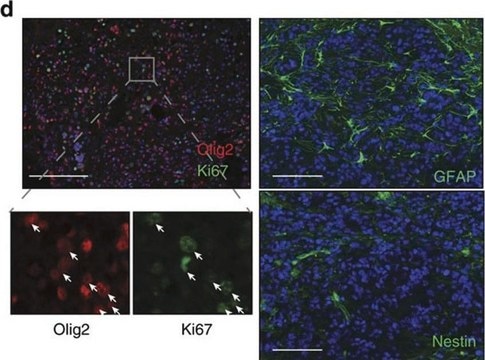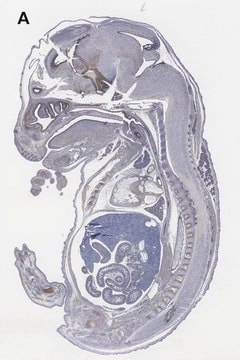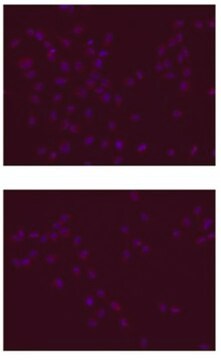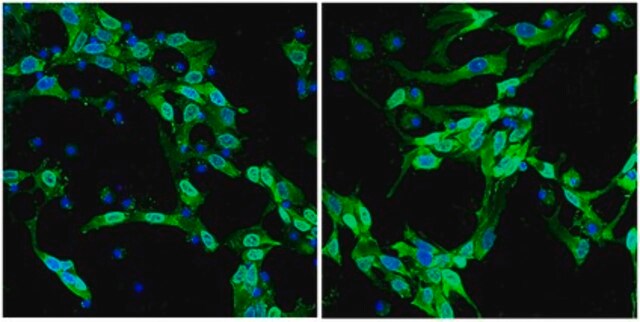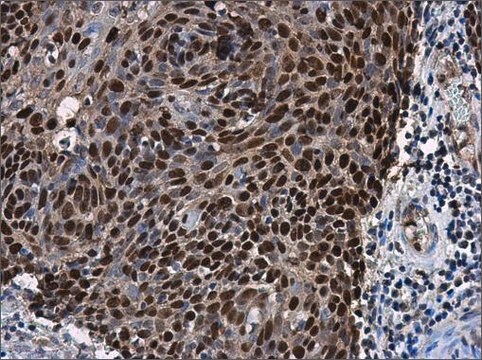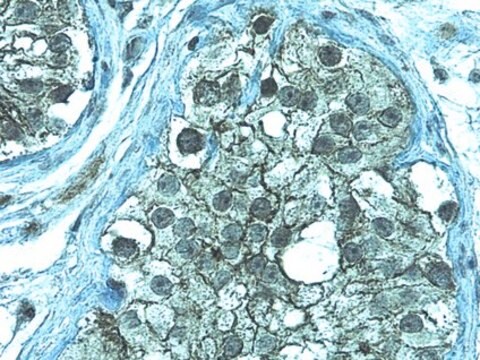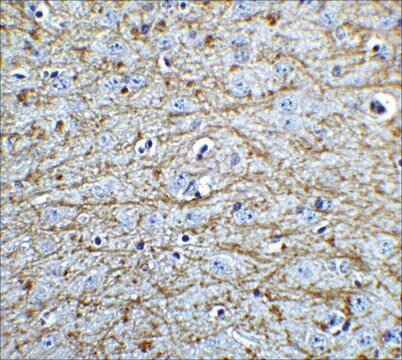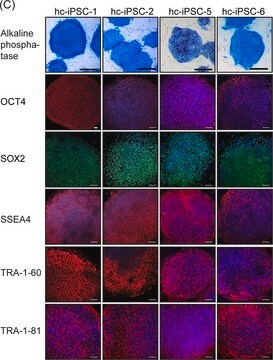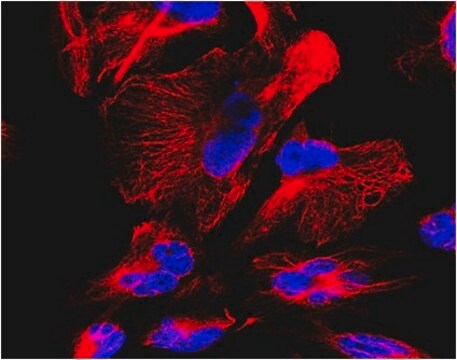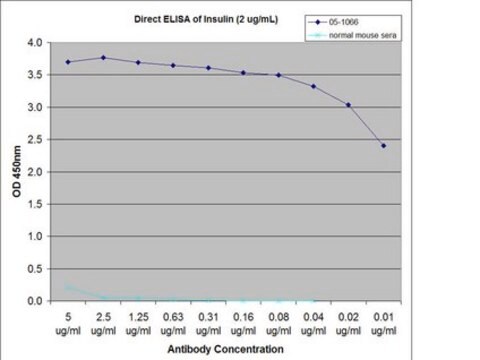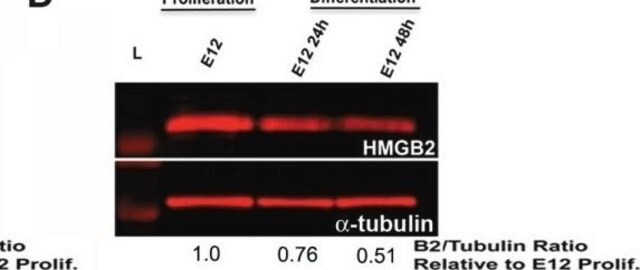AB5603
Anti-SOX2 Antibody
CHEMICON®, rabbit polyclonal
Synonym(s):
Transcription factor SOX-2, Sex determining region Y-box 2, SRY-related HMG-box gene 2, Transcription factor SOX2
About This Item
Recommended Products
product name
Anti-Sox2 Antibody, Chemicon®, from rabbit
biological source
rabbit
Quality Level
100
300
antibody form
affinity isolated antibody
antibody product type
primary antibodies
clone
polyclonal
purified by
affinity chromatography
species reactivity
human, mouse
species reactivity (predicted by homology)
rhesus macaque (based on 100% sequence homology), rat (based on 100% sequence homology), bovine (based on 100% sequence homology)
packaging
antibody small pack of 25 μg
manufacturer/tradename
Chemicon®
technique(s)
immunocytochemistry: suitable
immunofluorescence: suitable
immunohistochemistry: suitable
western blot: suitable
NCBI accession no.
UniProt accession no.
shipped in
ambient
storage temp.
2-8°C
target post-translational modification
unmodified
Gene Information
human ... SOX2(6657)
Related Categories
General description
Specificity
Immunogen
Application
Immunocytochemistry Analysis: A representative lot detected nuclear Sox2 immunoreactivity in 4% paraformaldehyde-fixed, 0.1% Triton X-100-permeabilized human embryonic stem cells (hESCs) by fluorescent immunocytochemistry (Kingham, E., et al. (2013). Small. 9(12):2140-2151).
Immunocytochemistry Analysis: A representative lot detected Sox2 immunoreactivity by fluorescent immunocytochemistry staining of 4% paraformaldehyde-fixed iPSCs generated from human kidney tubular renal epithelial cells (Montserrat, N., et al. (2012). J. Biol. Chem. 287(29):24131-24138).
Immunocytochemistry Analysis: A representative lot detected Sox2 immunoreactivity by fluorescent immunocytochemistry staining of 4% paraformaldehyde-fixed, 0.5% Triton X-100-permeabilized iPSCs generated from the skin cells of patients with Parkinson′s disease (Sánchez-Danés, A., et al. (2012). EMBO Mol. Med. 4(5):380-395).
Immunocytochemistry Analysis: Representative lots detected Sox2 immunoreactivity by fluorescent immunocytochemistry staining of 4% paraformaldehyde-fixed, 0.2% Triton X-100-permeabilized iPSCs generated from mouse ear cells and MEF (Burns, J.C., et al. (2012). PLoS One. 7(10):e48704; Hadadeh, O., et al. (2012). PLoS One. 7(11):e49065).
Western Blotting Analysis: A representative lot detected Sox2 in mouse embryonic stem cell (mESC) nuclear extracts (Banaszynski, L.A., et al. (2013). Cell. 155(1):107-120).
Immunofluorescence Analysis: A representative lot detected Sox2-positive cells in 4% paraformaldehyde-fixed, 0.3% Triton X-100-permeabilized mouse brain vibratome sections by fluorescent immunohistochemistry (Matsuda, S., et al. (2012). J. Neurosci. 32(36):12543-12557).
Immunohistochemistry Analysis: A representative lot detected Sox2 immunoreactivity in 4% paraformaldehyde-fixed whole mount mouse embryo sections (van Rooijen, C., et al. Development. 139(14):2576-2583).
Quality
Western Blotting Analysis: 1 µg/mL of this antibody detected SOX2 in 10 µg of mouse embryonic stem cell lysate.
Target description
Linkage
Analysis Note
Immunoblot: Mouse or human embryonic stem cell lysate, mouse embryonic germ cell lysate
Immunocytochemistry: Human embryonic stem cells (H9 line)
Legal Information
Not finding the right product?
Try our Product Selector Tool.
Storage Class
12 - Non Combustible Liquids
wgk_germany
WGK 1
flash_point_f
Not applicable
flash_point_c
Not applicable
Certificates of Analysis (COA)
Search for Certificates of Analysis (COA) by entering the products Lot/Batch Number. Lot and Batch Numbers can be found on a product’s label following the words ‘Lot’ or ‘Batch’.
Already Own This Product?
Find documentation for the products that you have recently purchased in the Document Library.
Customers Also Viewed
Articles
ReNcell neural progenitors are immortalized human neural stem cell lines that can differentiate into neurons, astrocytes sand oligodendrocytes.
Human iPSC neural differentiation media and protocols used to generate neural stem cells, neurons and glial cell types.
Our team of scientists has experience in all areas of research including Life Science, Material Science, Chemical Synthesis, Chromatography, Analytical and many others.
Contact Technical Service